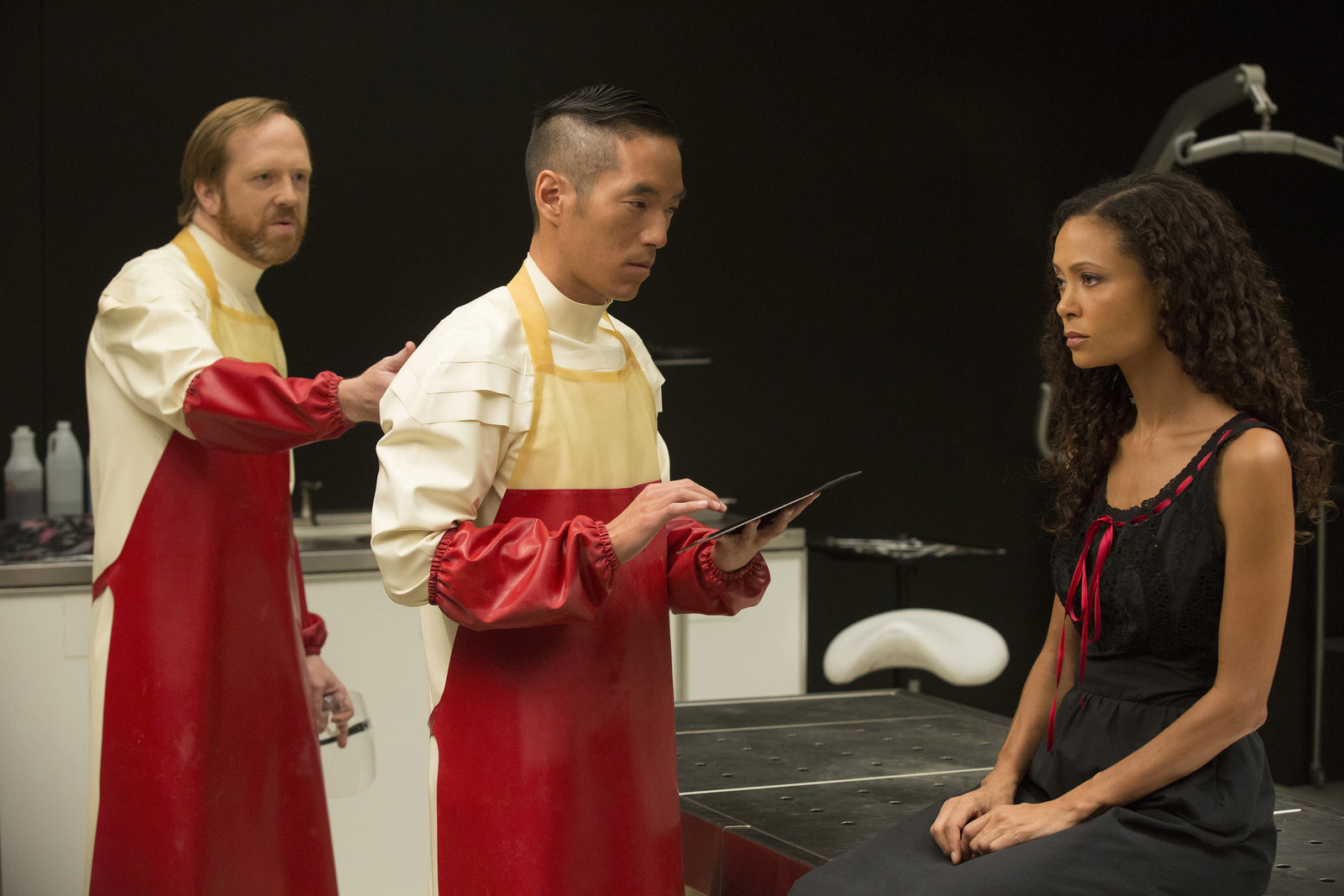
After it was revealed in March that The Crown’s Claire Foy had been paid less than Matt Smith, her supporting costar in the first two seasons of the popular Netflix series, the debate over Hollywood’s pay disparity roared to new life. Months earlier, Octavia Spencer told press that Jessica Chastain helped her obtain five times her original salary for an upcoming comedy they are set to star in together. Just weeks before, people were outraged over reports that Mark Wahlberg made $1.5 million for reshooting his scenes in All the Money in the World, while his costar Michelle Williams made less than $1,000. After weeks of public outcry, Wahlberg donated his earnings to the anti-harassment campaign Time’s Up.
The wage gap isn’t new, from Hollywood sets to law offices to retail stores. To level the playing field for women and minorities, who have historically earned less than their white male counterparts, California lawmakers passed a law in October 2017 that forbids employers from asking potential hires for their pay history. The law, which went into effect this year, was designed to give women and people of color a better shot at being paid fairly.

Jessica Stender, a senior staff attorney at women’s rights organization Equal Rights Advocates, told BuzzFeed News that asking potential hires about their previous salaries “by nature would perpetuate that gap.” That’s why she helped fight to pass the ban in California last year. Delaware, Massachusetts, Oregon, New York City, and Puerto Rico are among the other places that have passed similar laws. Some companies, like Bank of America and Amazon, have since instituted a blanket ban across their offices.
Now that studios are no longer permitted to request a would-be star’s previous salary, also known as the actor’s “quote,” executives must now base wages on the performer’s skills and experience. According to some sources, women and nonwhite performers have seen significant pay bumps as a result of this law. Entertainment lawyer Rick Genow told the Hollywood Reporter that he has seen a 10% to 20% increase in the salaries of women and nonwhite actors who closed deals this pilot season.
“We can’t pay a guy more than her if she’s first on the call sheet.”
Talent attorney Nina Shaw, who represents filmmaker Ava DuVernay and actor Lupita Nyong’o, among others, estimates that her clients were able to secure a 30% pay increase this pilot season. “We just set a number,” Shaw told the crowd at a March panel at Los Angeles women’s club Doyenne. She made sure her top women talent received the pay they deserved by telling executives, “We can’t pay a guy more than her if she’s first on the call sheet.”
Tara Kole, a partner with entertainment law firm Gang, Tyre, Ramer & Brown, said that her clients received “significant raises” this pilot season, but she was reluctant to attribute the improvements solely to the law. “There are so many other factors that go into it; it would be hard to isolate the variable of the law and say that this is the thing that changed it,” she said. But Kole pointed out that it has made executives and producers more mindful of paying actors equally or at least comparably.
Actors who spoke to BuzzFeed News said it’s yet unclear whether the new law will create meaningful, lasting change for all actors across the industry.
Although Westworld actor Leonardo Nam told BuzzFeed News that he hopes the law will lead to “a new era of new paydays” for underrepresented actors across Hollywood, he personally hasn’t experienced a significant raise. To his knowledge, none of his peers have seen pay improvements because of the new law, either.

There are some issues the law can’t help. Nam, who is best known for his role on the hit HBO sci-fi drama, returning for its second season this month, explained that because Hollywood is a “very small town,” the people involved in his negotiations likely already know or can easily find out what he was previously paid.
Like white women in Hollywood, actors of color are not immune to the industry’s discriminatory wage practices. In fact, the shortage of significant roles available to them — both in front of the camera and behind the scenes — make them more susceptible to wage discrimination. The University of Southern California’s Annenberg Inclusion Initiative found that in the 100 top-grossing films of 2016, only 13.6% of speaking roles went to black actors, 5.7% to Asian actors, 3.1% to Latinx actors, and 7% to other nonwhite actors. Meanwhile, white actors portrayed 70.8% of speaking roles onscreen. The pay disparity is compounded for women of color: While 34 of the top 100 films from 2016 featured a woman in a leading or co-leading role, only three of those were women of color. With the supply of talent far outweighing the demand, marginalized actors hold little leverage during the negotiations process.
During negotiations for a film deal, a studio executive had told Nam’s rep that he had “hit the top of the Asian tier.”
Nam, who is Korean, discovered this firsthand about a decade ago, after years of working steadily to build his résumé and quote. During negotiations for a film deal, a studio executive had told Nam’s rep that he had “hit the top of the Asian tier.”
“That was one of the biggest punches in the gut I’ve ever had in my life,” recalled Nam, who ultimately decided to take the job despite the blatant discrimination he’d encountered. “You’ve got to understand that as an actor coming into this, you don’t necessarily have that much power,” he said. “The power comes from the studio or those who hold the money, the purse strings.”
Even established stars like Hawaii Five-O’s Daniel Dae Kim and Grace Park, who were regulars on the CBS police procedural for seven seasons, failed to reach a deal with the studio last summer. They left the series, reportedly after CBS refused to bump their salaries to match those of their white costars.

Keesha Sharp, who stars on Fox’s series spinoff of Lethal Weapon, told BuzzFeed News about her journey in demanding that studios value her and pay her what she deserves. Though Sharp pointed out that television and film now offer more opportunities for actors of color, it wasn’t like that when she first started acting in the early 2000s. “There wasn't a lot of work for us,” explained Sharp, who is a black woman. “So when that one role came about, everyone was fighting for it,” which gave studios all the control. Once, when trying to close the deal on a project, an executive told her rep that they couldn’t afford her quote. Either she took their offer, or they would write her character out of the project. “If I push, they're going to push back — and maybe I won't get it because I'm a woman, I'm a black woman,” continued Sharp. “They can easily say, ‘Never mind, we'll get someone else.’”
To her knowledge, the salary history ban hasn’t affected Sharp’s negotiations; she wasn’t aware of the law before speaking with BuzzFeed News. But she is optimistic that the change has coincided with initiatives like Time’s Up and a slight uptick in projects featuring actors of color. “The diversity on television and film is changing,” said Sharp. “Therefore the value is changing, and you know you have more power now to fight for more.”

For actors with disabilities, however, there are still very few opportunities for them to demonstrate their acting prowess. In 2016, only 2.7% of the 100 top-grossing films featured characters with disabilities, and almost all of those roles went to nondisabled actors. Thus, the path to pay equity is steeper for actors like Eileen Grubba, best known for her part on FX’s Sons of Anarchy, a drama about a motorcycle gang.
Grubba — who walks with an uneven gait after sustaining an injury to her spinal cord — said that the discrimination she has encountered is more insidious. “Those of us who deal with it all the time, we feel it, we see it, we recognize it,” she said. “They often will make you feel like, ‘Hey, look, we're doing you a huge favor here, and we're putting ourselves out on a limb because there's something wrong with you. You need to work for whatever we say you're going to work for.”
“Look you’re either going to take what we're offering, or we're just going to give the job to somebody else.”
Like Nam and Sharp, Grubba noted that marginalized actors rarely have any pull when trying to negotiate for higher wages. She referred to a casting director who in 2014 refused to pay her quote for a popular television show. “He was basically saying, ‘Look, you’re either going to take what we're offering, or we're just going to give the job to somebody else.’”
Although the new law stipulates that studios not ask about a prospective hire’s previous salary, actors are free to disclose their quote, if they wish. But still, Grubba worries that the new law will have only adverse effects on her pay.
For Grubba, “the quotes were meant to say, ‘Hey, it's proven they've earned this amount for their time,’” a way to measure one’s experience and establish a starting point in the negotiation process. “It's hard to tell if this is just going to give [studios] another way to pay us less.”
But according to Kole, the entertainment lawyer who spoke to BuzzFeed News, legislation alone will not change Hollywood’s pay inequity problem.
“I think the law is a good law, but I think it's sort of a blunt instrument. It's not going to solve the problem here.” Actors, she said, “have to have the credits, they have to have the experience, they have to have the opportunities.” ●
Marcus Jones contributed additional reporting to this story.
